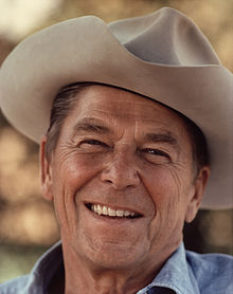
This November 6th, we will elect a new president. We have confidence that whoever we choose will take us in the direction promised in the campaign, but in reality, we know it’s not that simple. It ignores the central role that public opinion plays in American politics.
President Obama made many promises 2008. I have no doubt that he earnestly wanted to fulfill his promises, but in many cases, he was thwarted. He would like us to believe it was the “other party” that thwarted him, but that’s not the case. The reason he was unable to keep many of his promises is that public opinion stood in his way. At every turn-closing Gitmo, holding trials for terrorists in New York, the DREAM act – attempts to keep promises were derailed by public opinion, and the efficient pandering machine that is Congress.
In our governments – federal, state, and local – very little happens without the assent of the people. Politicians are nothing if not masters of the art of sensing public approval. Those who do not have this gift do not stay in office long. Politicians are acutely aware of the mood of the public, and don’t wait until election time to take action. Pandering is a 24/7, full contact sport in Washington DC.
Presidents do it too, and not just in election years. Their words and actions have enormous influence on the success of politicians at all levels, especially those from the same political party. Political allies depend on the president’s success, and the president depends on them. Presidents do not, and cannot act alone.
Ronald Reagan is beloved by conservatives as a leader and transformational figure. Conservatives see him as a revolutionary, turning back the tide of pessimism and government overreach in the 1980s, and opening an era of prosperity. However, I wonder if Reagan gets too much credit. The tremendous sensitivity of congress to public opinion was no less in 1980 than it is today. Congress has been in the business of getting re-elected since the beginning of the republic. Ronald Reagan didn’t even have a majority in Congress to support him, yet he got major legislation passed early in his term to enact his agenda.
It may be that we have it backwards. Maybe it wasn’t so much Reagan who led us out from under President Carter’s malaise. Maybe Reagan was more a talented man in the right place, at the right time. He caught the mood of the people, and so did congress. The people were sick of being told that they were in decline, that their best days were behind them, and that they could not fix it themselves.
Maybe Reagan didn’t lead as much as follow. He didn’t create the ideology that he championed. Maybe his role was to crystalize the will of the people into magnificent rhetoric and put it into action. Maybe he was little more than a superb vessel.
Mitt Romney has worked hard to be a “moderate,” much to the chagrin of many conservatives. While this choice makes him a suboptimal choice for those “real” conservatives, it makes him an excellent vessel. His job, as with all politicians, is to do the will of the people. What better way to do this than to elect a man ready to carry out the wishes of the people, without too many preconceived notions of what must be done.
As with Reagan, maybe we are not choosing a leader who will take us somewhere, but a politician who will reflect our will, and followour lead.
Maybe we look at elections backwards, too. Maybe election day is not the end of a process, but the beginning. If politicians are so sensitive to the wishes of the people, as I believe they are, the people have a responsibility – a duty – to hold their elected representatives’ feet to the fire. As with pandering, accountability should also be a 24/7, full contact sport in America.
Vote carefully on Nov 6th, and remember that no matter who wins, your voice should not fall silent when the returns are in.
The real work begins on Nov 7th.

